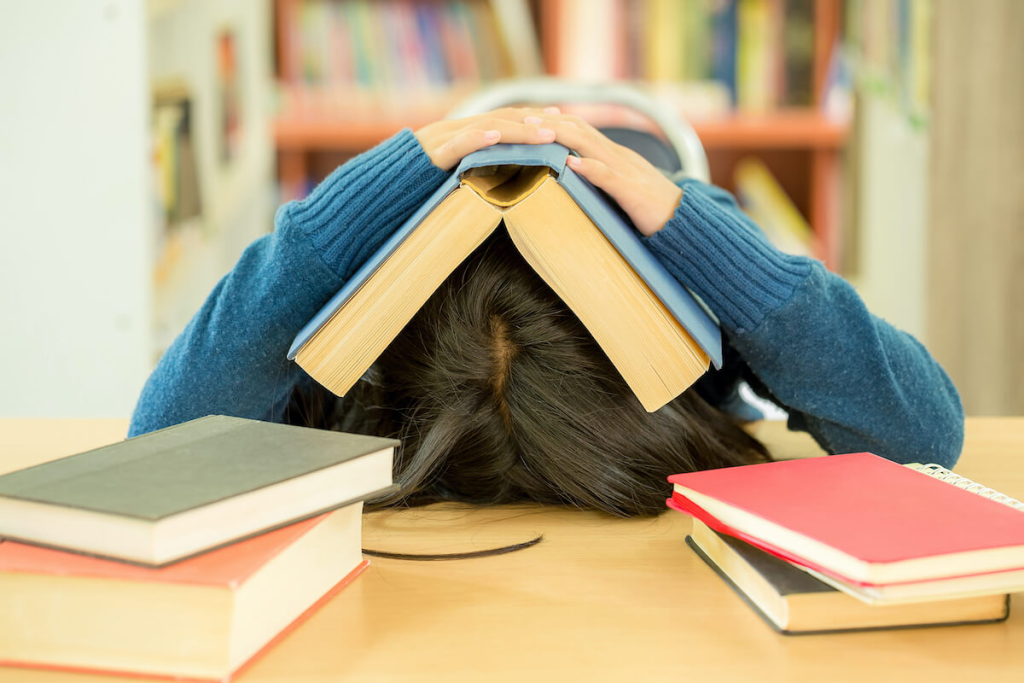
Studying is a vital part of life because it creates a path toward one’s future, so you strive hard to have high exam scores and be the best student in class. With this, stress could be unavoidable, especially with the number of classes one student takes. Pressure can be felt when you are given a significant number of tasks with the same deadline or when you have to study for two or more exams in a day which triggers stress hormones. Overexposure to stress hormones can increase physical and mental health risks and affects a student’s academic performance and well-being.
Student stress, more prevalent among college students, causes a number of physical symptoms that might be harmful to their overall health and can affect their academic performance. There can be several manifestations of the body’s stress response like trouble concentrating on tasks, trouble sleeping, developing unhealthy habits, increased anxiety, and even weight gain,
Let’s take a look at some effects of stress on students:
Effects of stress on students
Sleep deprivation
With the number of activities given to a student each day, most of the time, they sacrifice sleep to finish these activities and assignments given them. It could be taxing to fit all these activities in one night. Sleeping also takes the backseat during exams week to have longer study sessions. These unhealthy habits can impact on their mental health and trigger chronic stress.
Poor health
Under demanding situations, people tend to forget about self care. Students get too engrossed in studying that they forget to eat dinner or altogether forego meals. Not getting enough nutrients can influence anyone both physically and mentally. It can lead to stress and anxiety, mood swings, lack of concentration, muscle tension, compromised immune system, effect in blood pressure, and lack of energy.
Depression
Chronic stress leads to negative thinking. Because of the amount of work given in a day, students tend to feel overwhelmed. Not having a positive attitude can discourage them and make them doubt their capabilities.
Stress Management Techniques and Coping Strategies
As a student, you tend to prioritize your study over your well-being. Because of stress, you tend to forget about yourself, which leads to poor physical and mental health. With that in mind, proper stress response and management of stress levels are needed. To manage stress, here are five relaxation techniques and options that can help relieve stress.
Make sure you get enough sleep
Students feel the need to sacrifice their sleep so they can have more time to study. However, lack of sleep often leads to loss of concentration. On the other hand, completing 8 hours of sleep will help improve the student’s study focus and reduce stress.
Taking breaks
It could be overwhelming sometimes because of the number of topics you need to study and the number of activities you need to do. Taking breaks is an important thing to consider whenever you feel this. One great example of a study technique is the “Pomodoro technique” wherein you study for 25 minutes and then take a break for 5 minutes. Then, after four rounds of pomodoros, you would take a break for about 15 to 30 minutes.
Eating healthily
When stressed out, some people tend to stress-eat. When stress-eating, some look for energy drinks and comfort foods which are mostly processed and junk foods like chips and candies. While eating these makes you feel better, it doesn’t help reduce stress or anxiety. What you eat affects your body’s functions, so committing to a healthy diet and eating healthy foods would help reduce stress. For example, nuts and berries can help improve memory, while dark chocolates can provide the boost in energy you need to study.
Exercise regularly
Because stress can cause anxiety and depression, exercising is one way to help improve your mental state. Engaging in any physical activity is an effective stress relief. When exercising, your body releases endorphins that trigger a positive mindset and improve mental well being. Some exercises that can relieve tension include walking or jogging around your neighborhood, stair climbing, yoga (which could also help calm your mind), and biking.
Meditating
Stress can cause anxiety, leading to nervousness and restlessness. In these cases, you can do meditation. Deep breathing improves airflow that help calm your nerves, reducing stress and anxiety. One way to meditate is to go to a quiet place, close your eyes, and focus on your breathing. It could help you relax and refocus for better learning concentration.
Conclusion
Stress is part of any student’s life. When not managed properly, stress can significantly affect the physical and mental health of students and their performance in school. The good news is there are complementary and integrative health practices that can help with stress management to avoid long-term impacts on mental health and overall well-being.
Remember to take care of yourself when under stress. Drink water, eat healthy, exercise, get proper sleep, and take a break. Taking care of oneself is more important than anything else in this world.

Check out our Condo for Sale Properties
Discover our condo for sale properties in the Philippines


